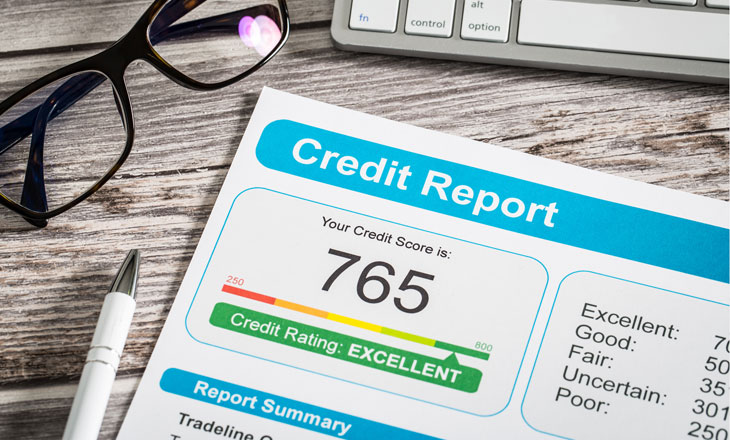Establishing Good Credit: 5 Tips to Get You Started
By: iTHINK Financial | Mar 04, 2019

Your credit score is a snapshot of your credit history; it’s the first impression lenders will have to see whether or not you can be trusted to repay them on time. In order to make that impression optimal, your credit score needs to be in the best
shape possible.
Your credit score is a combined calculation based on how much credit you have, how long you’ve had it and how well you control it. It takes time to build your score to great heights, but the climb gets easier once
you have a strong foundation. Here are some tips that you can start implementing today to help you to establish good credit.
Keep Your Balance Low
Credit reporting agencies will consider your debt-to-limit ratio when determining your score. Your debt-to-limit ratio is calculated using how much you currently owe divided by how much credit you have available. Ideally, that number will remain as low
as possible, but VantageScore experts agree that keeping your ratio at 30% or lower will reflect more positively on your report.
Don’t give up if you can’t keep your percentage that low. There isn’t a threshold at
30% that will cause your score to plummet; it’s just a strong guideline to use when mapping out how you’ll establish good credit. You can still have a respectable score with a higher ratio, but it will improve dramatically if you can keep
it as close to zero as possible.
Make Your Payments in Full
Building credit consists of a lot of steps that can be combined to maximize your score. Paying off your balance completely each month can demonstrate reliability – and it should be relatively easy if you’re keeping your debt-to-limit below
30%. Having minimal balances shows that you’re in complete control of your finances and that you know how to use your credit responsibly.
If you can’t pay your balance in full, try to at least pay more than the minimum amount
due. Credit can become cyclical and paying as much of your statements as possible will help to reduce or eliminate interest charges, which makes it easier to stay on top of keeping a low balance in the future.
Make Your Payments on Time
Your payment history is the most influential factor in building credit, and it can help you to see results the quickest. It takes about
one month of timely payments and responsible borrowing for your credit to start growing, but it takes much longer to repair credit if you’ve missed even one payment.
The best way to build your credit is by making sure that
you are always timely with your payments. If you’re worried that you won’t be able to manage paying off your bills on time, you can set up automatic payments to have your balance withdrawn each month or have your statements sent via
email to ensure that you get a prompt reminder.
Diversify Your Loans
Having a mixture of accounts is significant to the strength of your score – and they become more helpful the longer you have them open. Credit cards are certainly great first steps to open doors to more substantial loans, but adding more to your
report can bolster your financial resume. Once you get comfortable with making your payments on time and keeping your balance low, you should look into bigger purchases that will show lenders your ability to borrow considerably.
Your score can include an assortment of credit cards, retail accounts, auto loans and mortgage loans, but before you make any inquiries about new credit, make sure that it’s the most effective
and feasible move for your score. Having too many new inquiries will decrease your average credit age, so choose wisely and give yourself time in between opening each account to fortify your credit compound the best way possible.
Proofread Your Reports
Don’t let your credit suffer because of a mistake you didn’t even make. You should check each credit report once a year and make sure that all of your information is relevant and correct. Pay close attention to the lines of credit that are
open to make sure that they are all correct. Your report will even show the timeliness of your monthly payments, which you should always check for accuracy as well.
If you find any discrepancies in your report, be sure to dispute them immediately. It’s important to stay on top of these reporting errors so you can prevent the accumulation of multiple errors or long-standing unreported ones.
Establishing
good credit takes time, but it’s a guaranteed success if you consistently follow the right steps. Paint the picture you want lenders to see tomorrow by becoming a more reliable borrower today.




